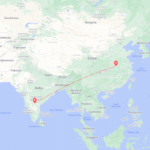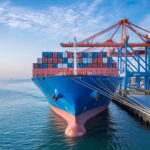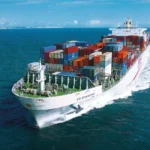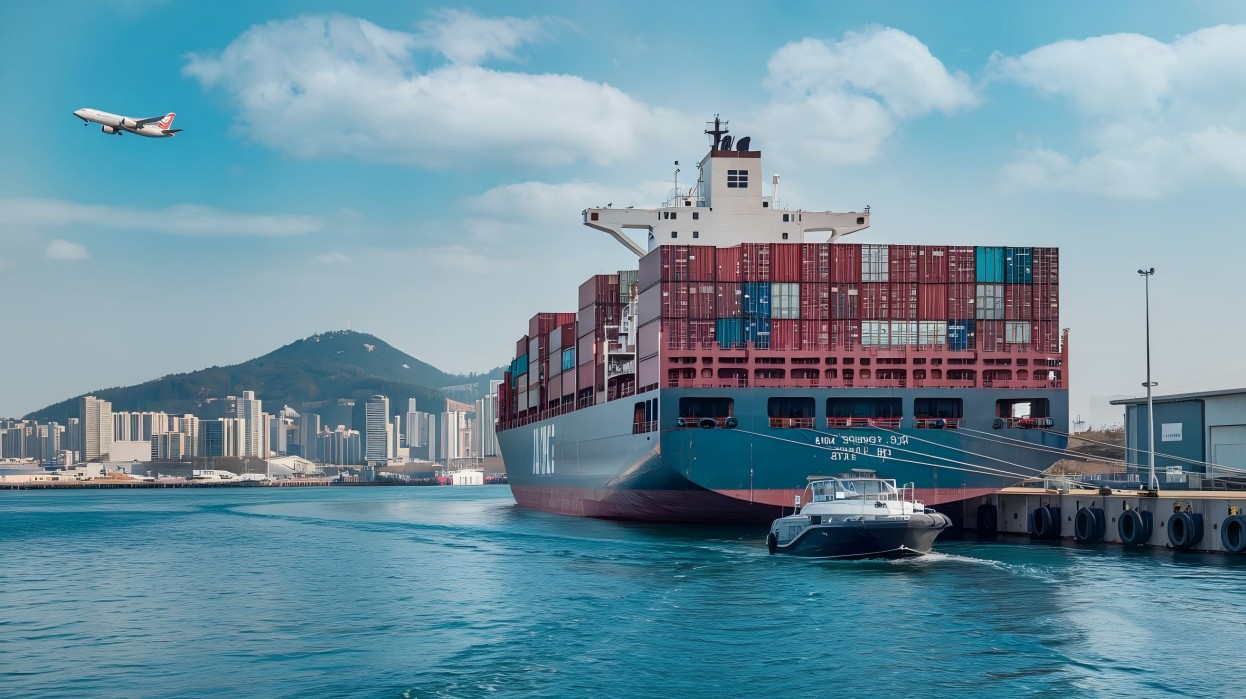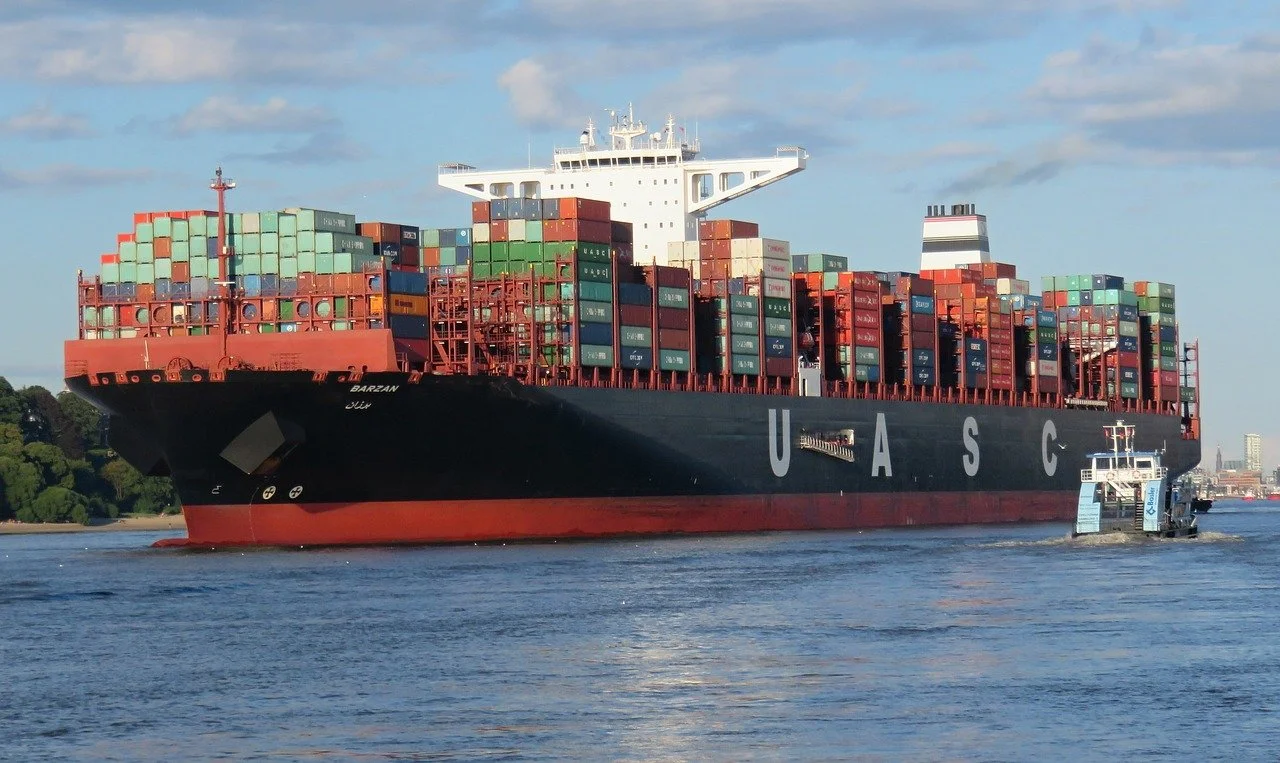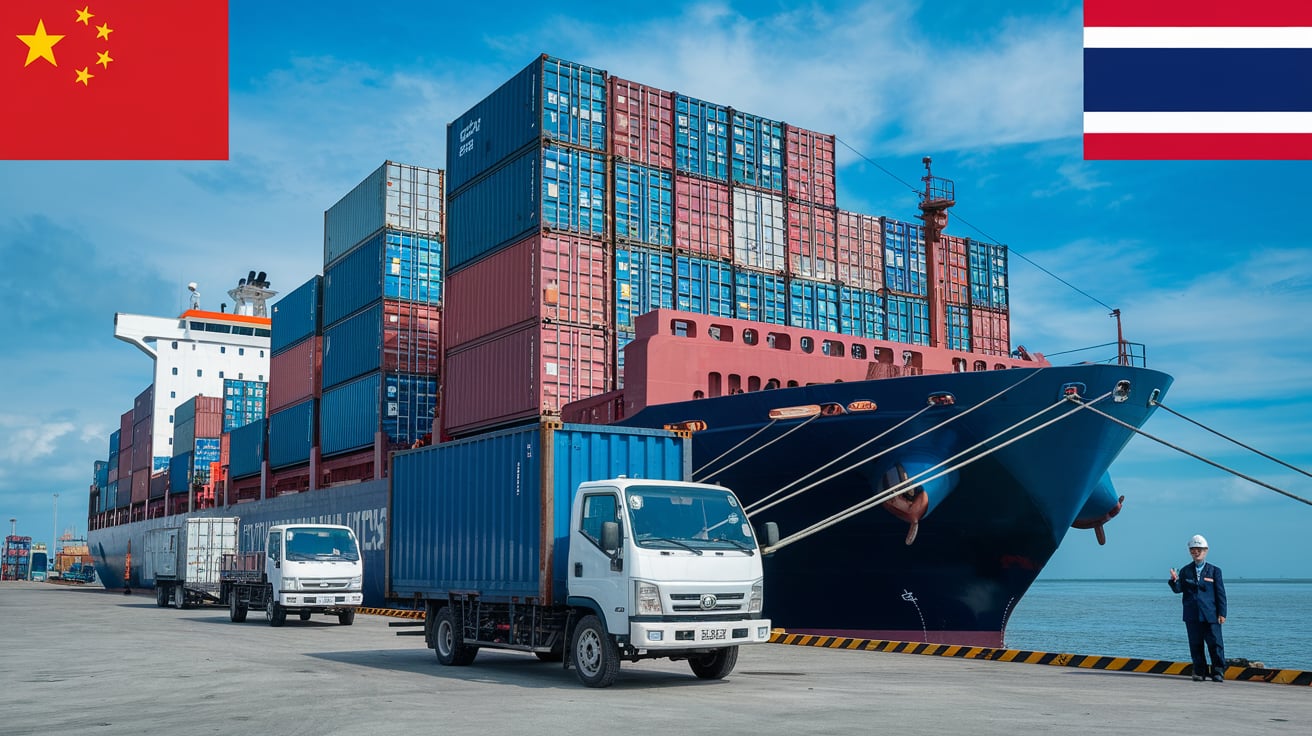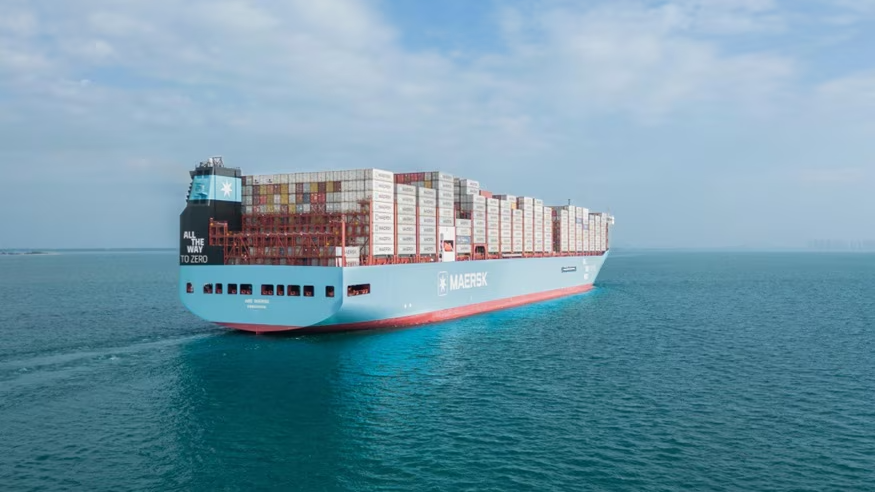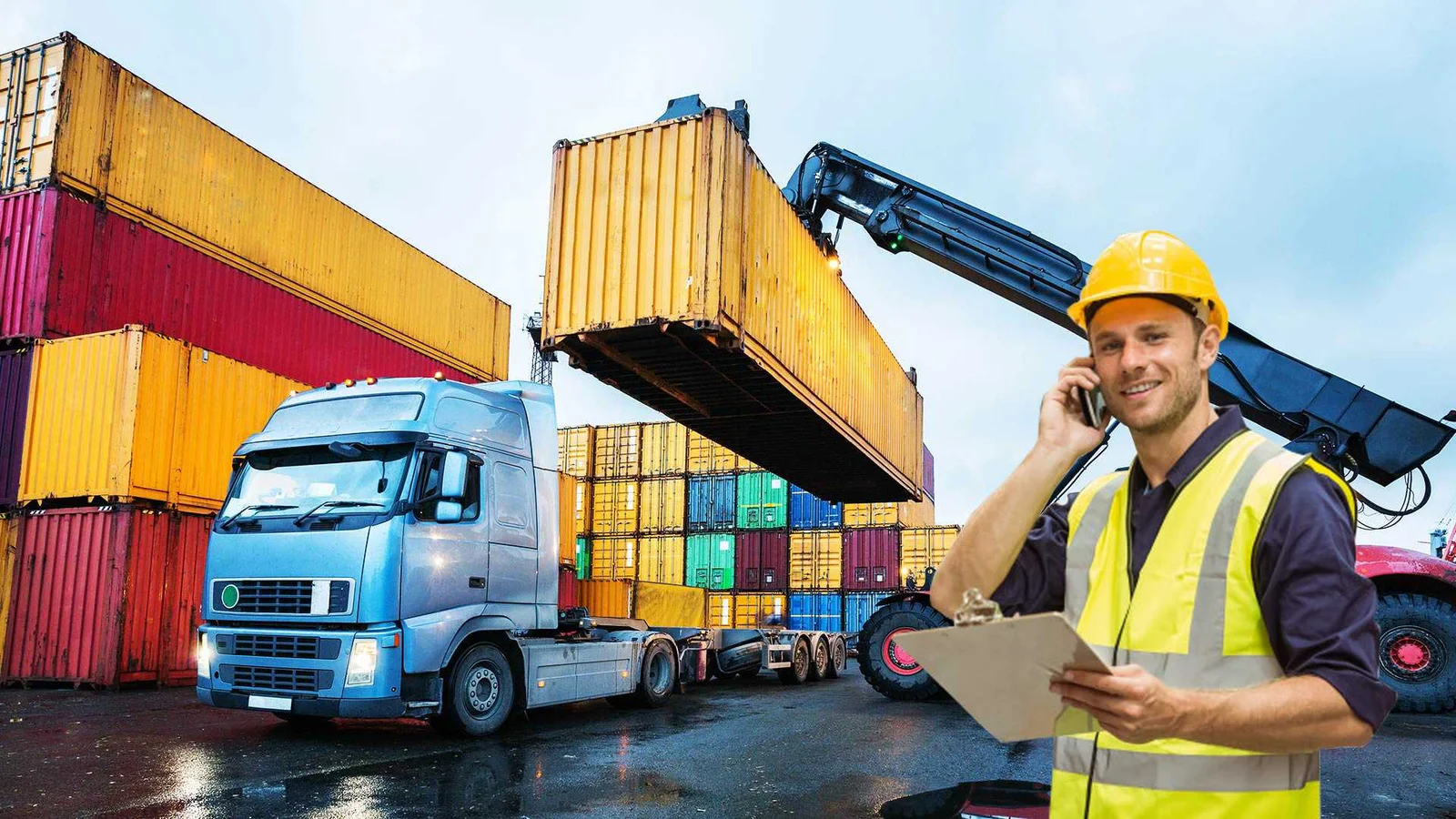Navigating the complexities of shipping from China to India can be daunting, especially for businesses striving to optimize costs while ensuring timely deliveries. With several shipping options available, including air freight and sea freight, understanding which method suits your needs is crucial. This guide provides valuable insights into shipping costs, transit times, and key factors influencing your logistics decisions. Whether you are a small trader or a large corporation, these tips will empower you to make informed choices, helping you find the most economical shipping solutions for your operations.
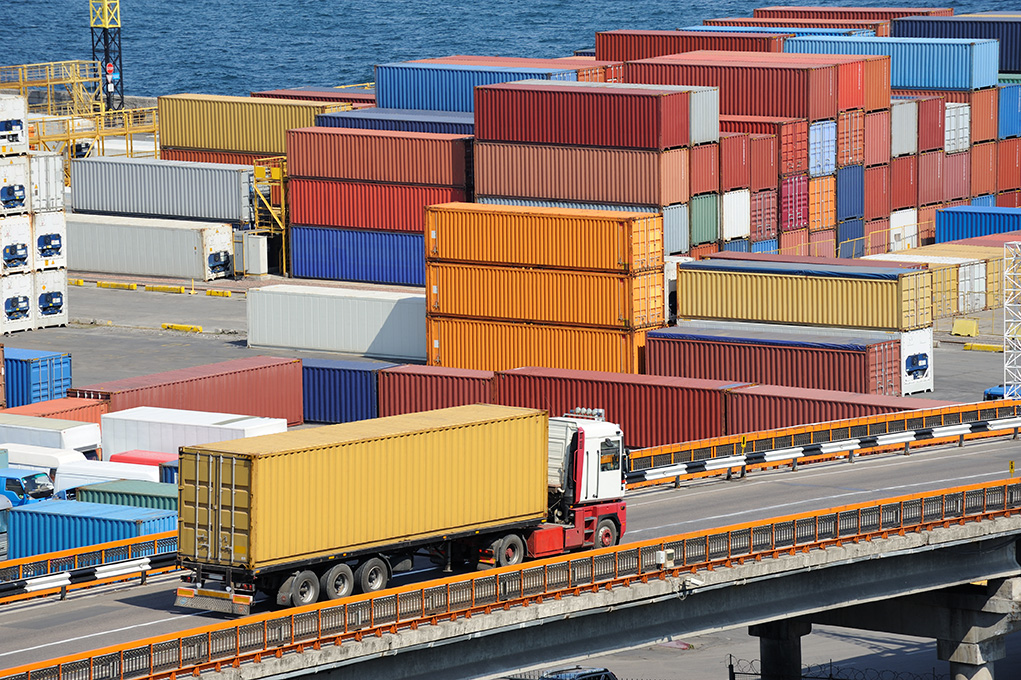
Understanding Shipping Options from China to India
As businesses continue to expand globally, understanding the various shipping options from China to India becomes essential for traders and importers. Whether you are a small business owner or a large corporation, the choice between air freight and sea freight can significantly impact your logistics strategy, costs, and delivery timelines.
Overview of Shipping Methods: Air vs. Sea Freight
When it comes to shipping from China to India, two primary methods dominate: air freight and sea freight. Each method offers distinct advantages and disadvantages depending on the nature of the goods, urgency, and budget constraints.
| Method | Speed | Cost | Ideal For |
|---|---|---|---|
| Air Freight | Fast (1-3 days) | Higher costs | Urgent shipments, perishables |
| Sea Freight | Slow (10-30 days) | Lower costs | Bulk shipments, non-urgent goods |
Air Freight is typically faster, making it suitable for businesses needing quick delivery of perishable or high-demand goods. However, this method is considerably more expensive than sea freight, which can impact profit margins.
On the other hand, Sea Freight is the more economical option for shipping large volumes of goods. It is ideal for bulk commodities and non-urgent items. Despite the lengthy transit times, sea freight is often the preferred choice for companies looking to save on shipping costs.
Key Factors Influencing Shipping Costs
Numerous factors can influence the overall cost of shipping from China to India, whether by air or sea. Understanding these factors can help importers make informed decisions.
-
Weight and Dimensions: Heavier and larger shipments generally incur higher shipping fees. Shipping costs can be calculated based on actual weight or dimensional weight, whichever is greater.
-
Distance: The distance between the shipping origin in China and the destination in India will affect the cost. Longer distances typically translate into higher freight charges.
-
Customs Duties and Taxes: Import duties and taxes levied by the Indian government can significantly increase shipping costs. It’s crucial to consult with a knowledgeable logistics partner who can assist with customs clearance.
-
Insurance: Protecting your cargo through insurance services is a necessary expense for high-value shipments. While it adds to your shipping costs, it can save you from significant losses in case of damage or loss during transit.
-
Seasonality and Demand: Freight rates often fluctuate based on demand. During peak seasons, such as festivals or holiday seasons, shipping costs may rise due to increased demand for cargo space.
You may be interested in the following related articles:
- Shipping From China To Vietnam
- Shipping From China To Thailand
- Shipping From China To South Korea
- Shipping From China To Philipines
- Shipping From China To Pakistan
- Shipping From China To Japan
- Shipping From China To Indonesia
- Shipping From China To Singapore
- Shipping From China To Malaysia
Shipping Costs: A Detailed Breakdown
To make an informed choice regarding shipping options, it’s essential to have a clear understanding of shipping costs associated with both air and sea freight.
Average Shipping Costs for Air Freight
Air freight costs vary significantly based on the service provider, route, and type of goods. On average, shipping costs from China to India via air can range from $5 to $10 per kilogram. For example:
- Lightweight goods (1-100 kg): $6-$10/kg
- Medium weight goods (100-500 kg): $5-$8/kg
- Heavyweight goods (over 500 kg): $4-$6/kg
These are average price ranges and can vary due to dynamic factors such as fuel surcharges and fluctuating demand.
Average Shipping Costs for Sea Freight
Sea freight is generally more cost-effective for bulk shipments. The average costs can vary depending on the shipping line and the specific service. Here are some indicative ranges:
| Shipment Size | Estimated Cost (USD) | Transit Time |
|---|---|---|
| Full Container Load (FCL) – 20ft | $1,000 – $1,500 | 20-30 days |
| Full Container Load (FCL) – 40ft | $1,500 – $3,000 | 20-30 days |
| Less than Container Load (LCL) | $300 – $600 per cubic meter | 25-35 days |
As with air freight, costs can fluctuate based on fuel prices, currency exchange rates, and seasonal demand.
Hidden Fees and Additional Charges
When calculating your shipping costs, it’s important to account for potential hidden fees and additional charges that can arise:
- Documentation Fees: Charges related to the preparation of necessary shipping documents.
- Handling Fees: Costs associated with the loading and unloading of cargo.
- Port Fees: Charges for using ports for loading and unloading.
- Storage Fees: If your goods remain at the port for a prolonged period, storage charges can accrue.
- Customs Brokerage Fees: Professional fees for customs clearance services, which can vary based on the complexity of your shipment.
- Insurance Premiums: The cost of insuring your cargo against loss or damage during transit.
By being well-informed about these costs, you can budget more accurately and avoid unexpected expenses.
Partnering with a reliable freight forwarder, such as Dantful International Logistics, can simplify the shipping process and provide comprehensive support. Their door-to-door shipping services cater to a variety of needs, ensuring a smooth transit and helping you navigate customs clearance efficiently. For a cost-effective and high-quality shipping solution, consider reaching out to Dantful today.
Transit Times: What to Expect
Understanding transit times is crucial when planning shipments from China to India. The expected transit time affects inventory management, customer satisfaction, and overall business operations.
Average Transit Times for Air Freight
Air freight is known for its speed, making it the preferred choice for urgent shipments. On average, shipments via air from China to India take approximately 1 to 5 days. Here are some specifics:
- Direct Flights: When using direct flights, transit times can be as short as 1 to 2 days.
- Transshipment Flights: If your shipment involves connecting flights, expect transit times of 3 to 5 days.
Air freight is particularly advantageous for perishable goods or high-demand products that require quick replenishment.
Average Transit Times for Sea Freight
Sea freight is significantly slower but more cost-effective for bulk shipments. The average transit time for sea freight from China to India ranges from 20 to 40 days, depending on several factors including the specific ports used and the shipping route:
- Full Container Load (FCL): Typically takes 20 to 30 days to reach major Indian ports.
- Less than Container Load (LCL): May take longer, generally around 30 to 40 days, due to additional loading and unloading procedures.
Sea freight is ideal for larger shipments that can afford longer transit times.
Factors Affecting Shipping Speed
Several elements can influence the speed of shipping, regardless of the method chosen:
- Route: Direct routes significantly reduce transit times compared to indirect or transshipment routes.
- Port Efficiency: The operational efficiency of both the departure and arrival ports can cause delays or speed up the process.
- Weather Conditions: Adverse weather can impact transit times, especially for air freight, leading to potential delays.
- Customs Clearance: Efficient customs procedures can expedite shipping, while delays in clearance can significantly add to transit times.
How to Choose the Right Shipping Company
Selecting the ideal shipping company is a pivotal decision that impacts the efficiency and cost of your logistics. A thorough evaluation is essential to ensure that your shipping needs are met effectively.
Comparing Shipping Companies: Key Metrics to Evaluate
When comparing different shipping companies for your logistics needs, consider the following metrics:
- Pricing Structure: Assess the overall shipping costs, including potential hidden fees such as documentation and handling charges.
- Transit Times: Evaluate the average transit times offered by each company for both air and sea freight options.
- Service Range: Determine whether the company provides a comprehensive suite of services such as customs clearance, insurance, and warehouse services.
- Reliability and Performance: Analyze the company’s track record for on-time deliveries and handling cargo with care.
The Role of Freight Forwarders in Cost Reduction
Freight forwarders play a crucial role in streamlining the shipping process, providing expertise in logistics management. A knowledgeable freight forwarder can help identify the most cost-effective shipping options, negotiate better rates with carriers, and navigate complex customs regulations. Their one-stop international logistics service can lead to substantial savings while ensuring a smooth shipping experience.
Customer Reviews and Reputation: What to Look For
Customer feedback is invaluable when selecting a shipping partner. Pay attention to:
- Customer Ratings: Look for companies with high satisfaction ratings and positive reviews.
- Case Studies: Examine case studies or endorsements from other businesses in your industry.
- Response Time: Assess the responsiveness of the company’s customer service, as timely communication is critical in logistics.
Dantful International Logistics Services:
- Dantful Ocean Freight Services
- Air Freight From China
- Amazon FBA Freight Forwarding
- WAREHOUSE Services
- One-Stop Customs Clearance Solution
- Cargo Insurance Services in China
- DDP Shipping Services By Dantful Logistics
- Out of Gauge Cargo Transportation Shipping Services
Customs Regulations and Import Duties
Navigating customs regulations is a fundamental aspect of importing goods into India. Understanding these procedures can help avoid delays and reduce costs.
Understanding Customs Procedures in India
The customs process involves several steps, including:
- Documentation: Submit required documents such as the bill of lading, invoice, and packing list.
- Customs Declaration: File a customs declaration to ensure compliance with Indian laws.
- Inspection: Be prepared for potential inspections by customs officials, which can affect delivery times.
Working with a reliable freight forwarder can simplify the customs process, ensuring compliance and reducing the risk of delays.
Common Import Duties and Taxes
India imposes various duties and taxes on imported goods, including:
- Basic Customs Duty (BCD): This is the primary duty based on the value of the goods.
- Integrated Goods and Services Tax (IGST): Applicable on imports, this tax is levied in addition to the BCD.
- Additional Duties: Depending on the nature of the goods, additional duties may apply, especially for specific products.
Understanding these charges can help businesses budget effectively for their import operations.
Tips for Reducing Customs Charges
- Classification Accuracy: Ensure that goods are accurately classified to avoid higher duties.
- Proper Documentation: Complete and accurate documentation can expedite customs clearance and prevent additional charges.
- Leverage Free Trade Agreements (FTAs): If applicable, utilize FTAs to reduce import duties on eligible goods.
Tips for Reducing Shipping Costs
Shipping costs can impact overall profitability, making it essential to find ways to reduce these expenses.
Strategies for Cost-Effective Shipping
- Consolidation: Combine multiple smaller shipments into one larger shipment to save on freight costs.
- Long-term Contracts: Negotiate long-term contracts with shipping companies for better rates.
- Opt for Economical Shipping Methods: Where applicable, choose sea freight over air freight to reduce costs.
Using Freight Forwarders and Logistics Services
Partnering with a reputable freight forwarder like Dantful International Logistics can provide numerous advantages in cost reduction, efficiency, and service quality. They offer a range of services, including door-to-door shipping, customs clearance, and insurance services, ensuring a seamless experience. Engaging with a knowledgeable logistics provider can lead to significant savings and optimized shipping strategies tailored to your specific needs.

Young Chiu is a seasoned logistics expert with over 15 years of experience in international freight forwarding and supply chain management. As CEO of Dantful International Logistics, Young is dedicated to providing valuable insights and practical advice to businesses navigating the complexities of global shipping.


